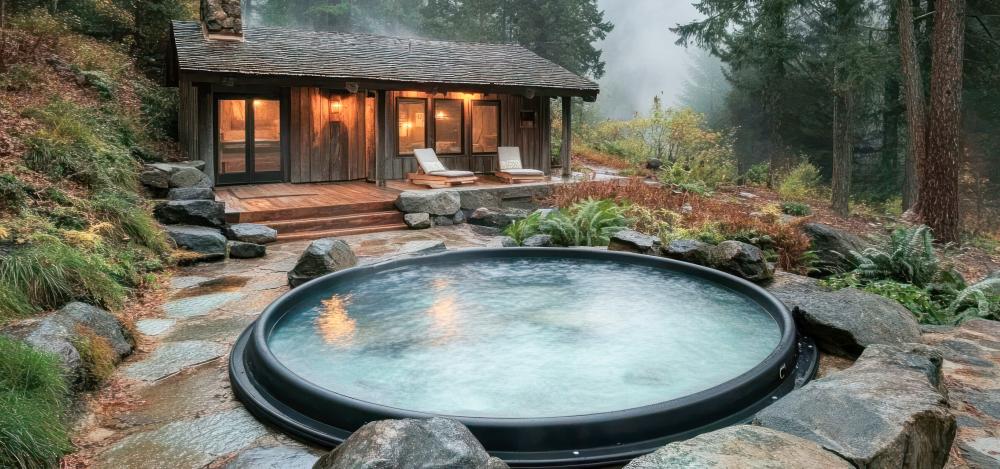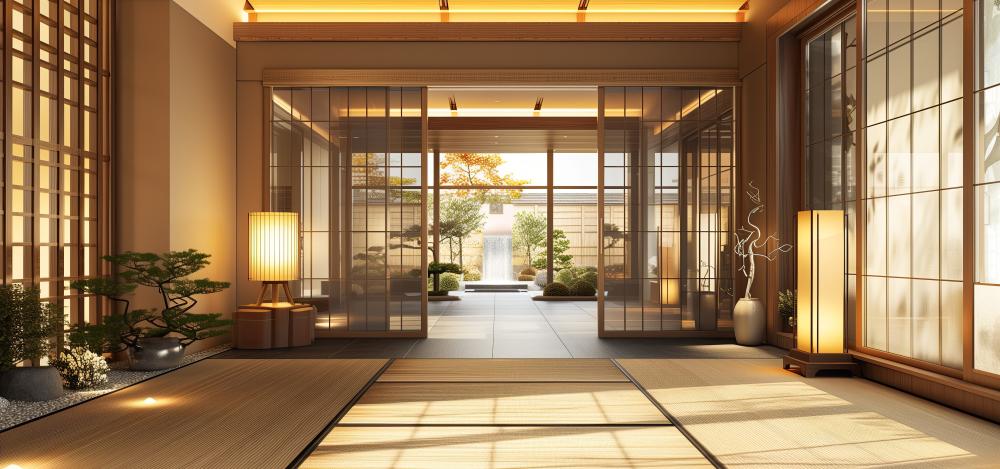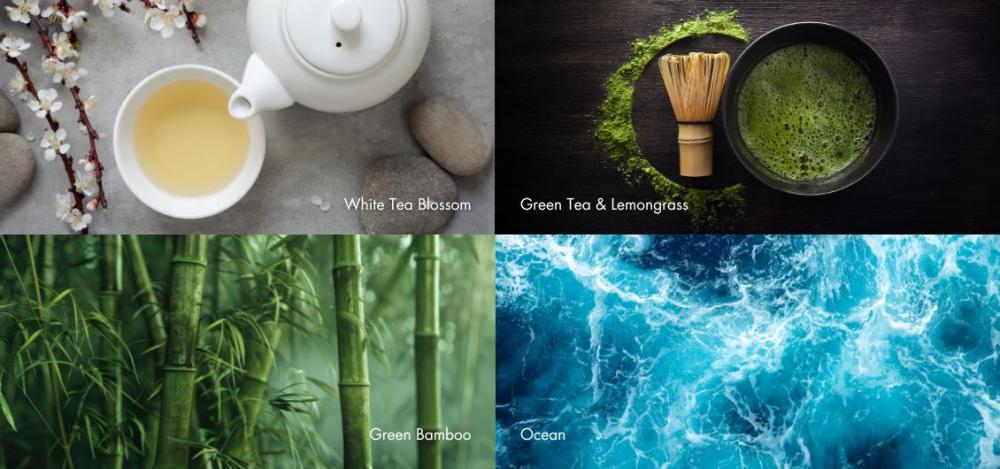With the highly anticipated 2025 World Expo set to take place in Osaka, Japan is preparing for an influx of international visitors. As millions of travelers from across the globe make their way to the Land of the Rising Sun, hotel brands in Japan are presented with a unique opportunity to redefine guest experiences by embracing J Wellness — a Japanese approach to health and well-being — and incorporating ambient scenting into their spaces. By strategically using scents that reflect the essence of Japanese wellness, hotels can make a memorable impression on visitors, deepening their connection to the Japanese culture and the wellness-focused lifestyle.
The Unique Characteristics of J Wellness
J Wellness, Japan’s distinct approach to well-being, is deeply rooted in centuries-old practices that emphasize harmony, mindfulness, and a connection to the nature. Influences from Japanese Zen philosophy, such as the concepts of wabi-sabi (embracing imperfection and impermanence) and shinrin-yoku (forest bathing), guide J Wellness practices, which are designed to foster a sense of calm, balance, and rejuvenation. J Wellness values simplicity, natural elements, and environmental harmony, encouraging people to reconnect with themselves and the world around them.
A major component of J Wellness is the influence of the environment on one’s mental and physical state. In traditional settings such as Japanese tea rooms, onsen (hot springs), and gardens, sensory elements like scent, sound, and texture are thoughtfully integrated to enhance the sense of relaxation and presence. Scent, in particular, plays a powerful role in setting the mood, easing stress, and fostering a sense of peace, which makes it an ideal enhancement to modern J Wellness.


Ambient Scenting: Supporting the J Wellness Experience in Hotels
As hotels prepare to welcome Expo 2025 guests, incorporating ambient scenting solutions aligned with J Wellness principles can elevate the guest experience and support Japan’s wellness tourism sector. With the right fragrances, hotels can mirror the sense of serenity found in Japanese gardens or tea ceremonies, creating immersive environments that resonate with guests on an emotional and sensory level.
Not only does ambient scenting improve the aesthetics of a space, but it also impacts the mental state of guests, reducing stress and enhancing relaxation. By selecting fragrances that align with J Wellness values — natural, harmonious, and grounding scents — hotels can help travelers find a moment of peace amid their busy schedules. This alignment with J Wellness is especially valuable, as more travelers seek accommodations that prioritize wellness-focused experiences.
Apart from infusing spaces with J Wellness-Inspired scents, hotels can also offer fragrance products such as reed diffusers, room sprays, and candles, in guest rooms or as purchasable souvenirs. These products would allow guests to take a piece of their experience home, extending the hotel’s brand beyond their stay.


ScentAir’s Curated Wellness Fragrance Collection for J Wellness
ScentAir, a global leader in ambient scenting, offers a selection of wellness-focused fragrances that seamlessly align with J Wellness philosophies. Here are four standout fragrances designed to elevate spaces while fostering a sense of calm, mindfulness, and rejuvenation.
- White Tea Blossom (2717): White Tea Blossom is a delicate, calming fragrance inspired by the purity and simplicity central to J Wellness. With subtle floral notes, this scent is reminiscent of a traditional Japanese tea ceremony, promoting relaxation and a sense of inner peace. Ideal for lobbies, lounges, or spa areas, White Tea Blossom offers guests a fragrant escape from the everyday.
- Green Tea & Lemongrass (1105): A crisp, refreshing scent, Green Tea & Lemongrass brings the outdoors in, reflecting the Japanese principle of shinrin-yoku, or forest bathing. This fragrance is an invigorating blend of green tea, known for its soothing properties, and lemongrass, which adds a touch of vitality. Perfect for wellness centers and hotel rooms, it leaves guests feeling rejuvenated and energized.
- Green Bamboo (1512): Green Bamboo creates an atmosphere of natural serenity. This fragrance is subtle yet grounding, reflecting the tranquil beauty of nature reminiscent of Japan’s lush bamboo forests. With its earthy and soothing qualities, Green Bamboo is a perfect match for spaces designed for meditation or yoga, encouraging guests to unwind and find balance.
- Ocean (0153): Channeling the rejuvenating energy of the sea, Ocean offers a refreshing, clean scent that brings a coastal touch to interior spaces. This scent is particularly suited for relaxation areas, reflecting the restorative power of water — a core element in Japanese wellness practices. The Ocean fragrance is light, calming, and perfect for helping guests achieve a sense of release and renewal.


Preparing for a Wellness-Centric Future
According to McKinsey & Company, two out of nine trends defining the global consumer market are related with wellness; one out of four imperatives to win the consumer of the future is investing in wellness1. In consumers’ eyes, mental wellbeing is the top priority as being healthy. The rising concern on wellness is a global trend, with the wellness tourism market projected to grow from US$915.77 billion in 2023 to US$2,336.34 billion, at a CAGR of 12.42% during the forecast period (2024-2031)2.
As Japan embraces a rising demand for wellness tourism, amplified by the spotlight of Expo 2025, hotel brands can leverage scent to offer guests an unforgettable staying experience that aligns with J Wellness ideals. With ScentAir’s expertly crafted wellness fragrances, hotels can create an ambiance that supports relaxation, mental clarity, and the harmonious environment that J Wellness represents.
Investing in scenting solutions is not only a nod to traditional Japanese practices but also a savvy move to capture the attention of modern wellness-focused travelers. By offering a multi-sensory experience that speaks to Japan’s wellness heritage, hotels will be well-equipped to make a lasting impression, fostering meaningful connections between international visitors and the spirit of Japanese wellness.
If you would like to learn more about how we can help you become a more sustainable business, please feel free to contact us.
Resources:
1. Christina Adams, Kari Alldredge & Sajal Kohli (2024). State of the Consumer 2024: What’s now and what’s next. McKinsey & Company.
2. Wellness Tourism Market Size, Share & Trends Report, Share & Trends Analysis Report By Service (Lodging, Wellness Activities), By Travel Purpose (Primary, Secondary), By Travel Type (Domestic, International), By Region, And Segment Forecasts, 2023 – 2030. Grand View Research.





